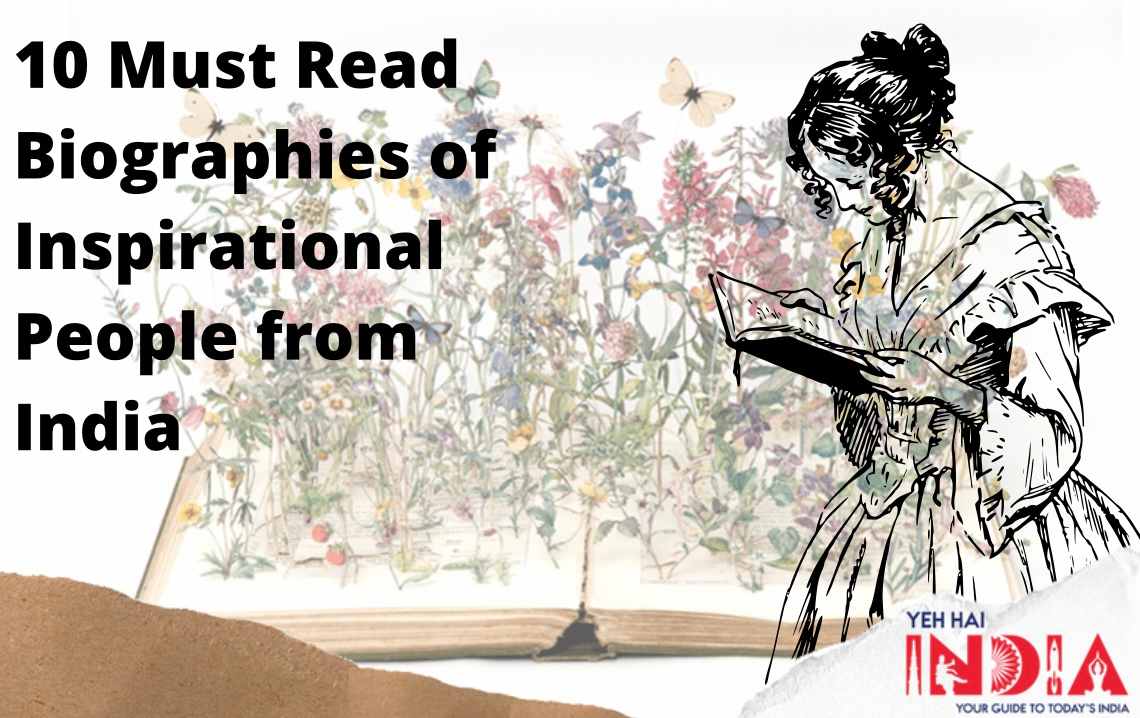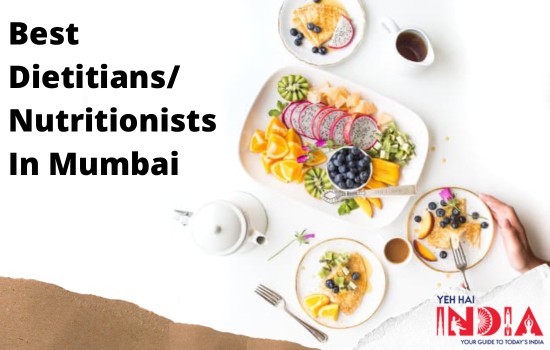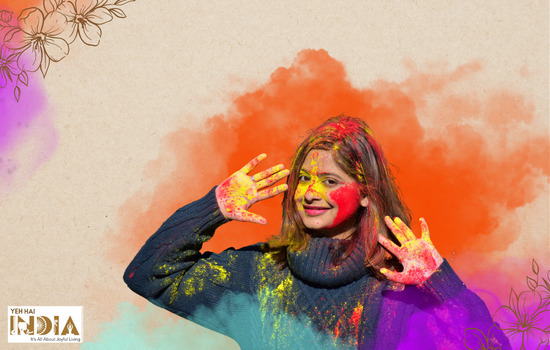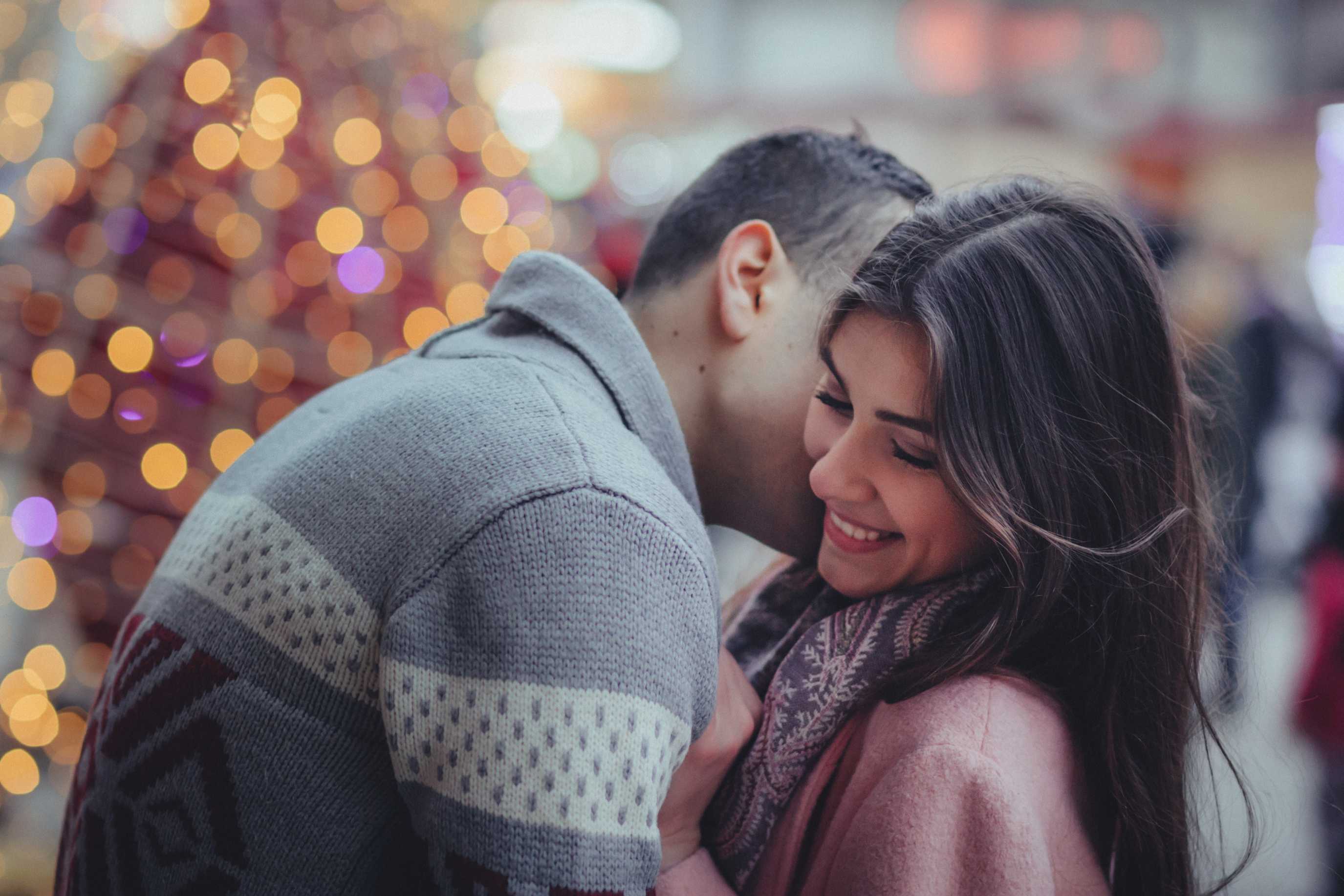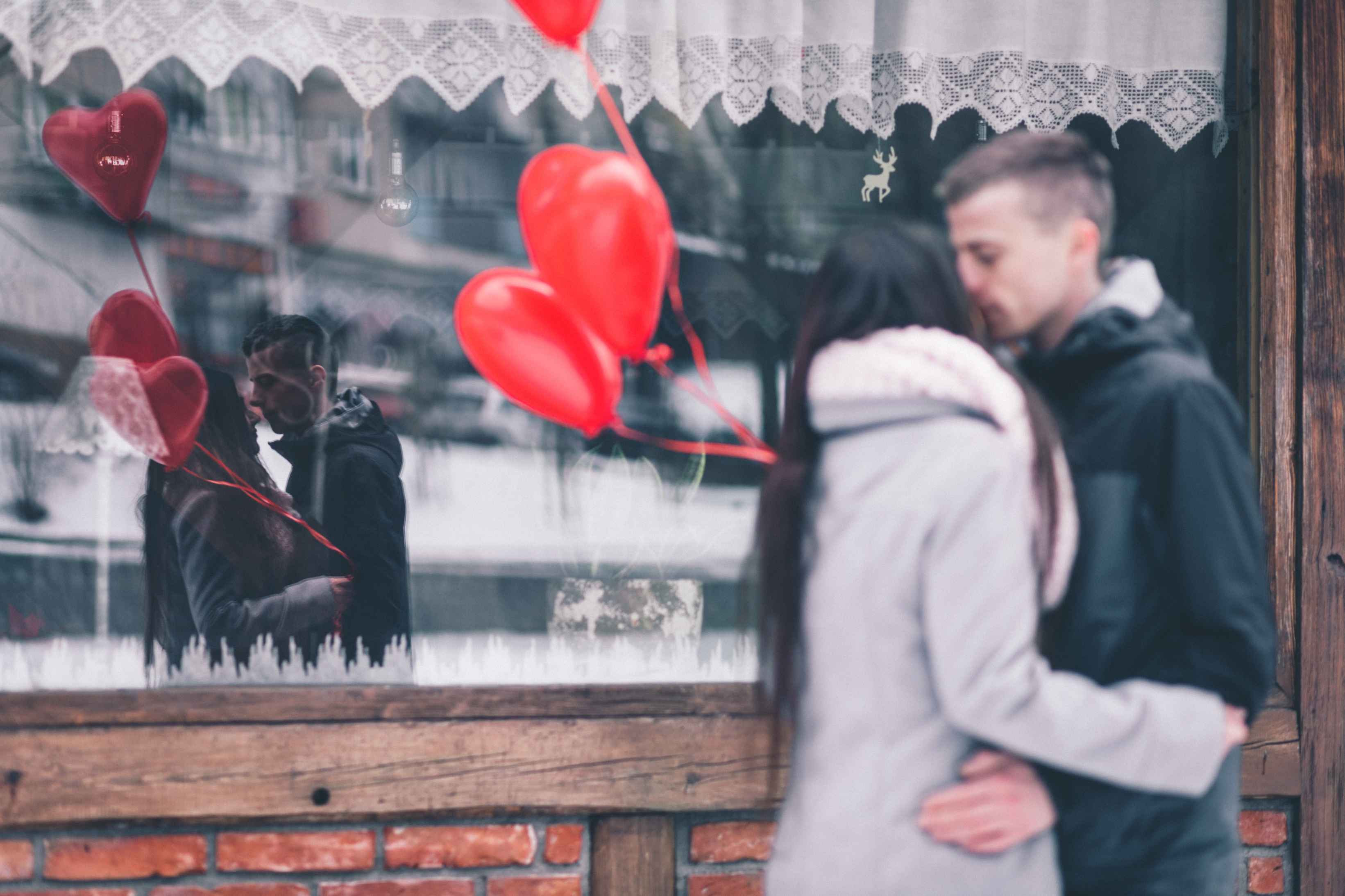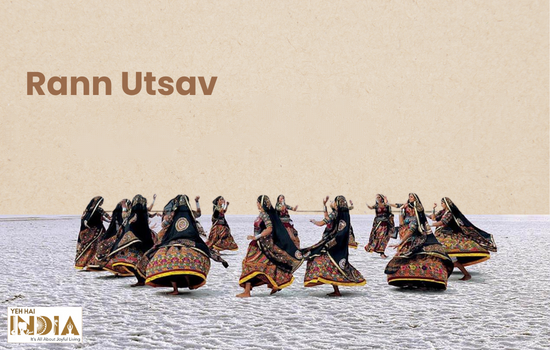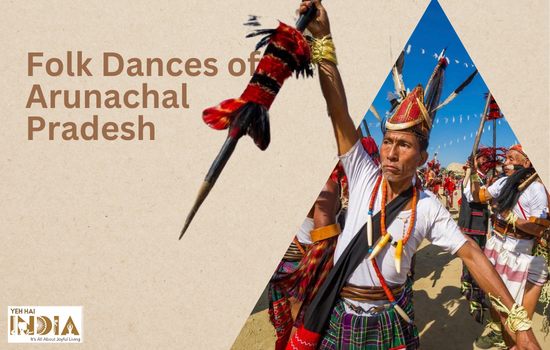‘You might have been a part of a wedding but ever understood the meaning behind the seven vows of the wedding?’
Here we explain to you the Seven Vows of Hindu Wedding!
Hindu Weddings reflect a rich culture and to enjoy this, you need to attend a wedding in India.
You will be surprised to find that different wedding ceremonies are held in different parts of the country and few ceremonies are common in almost every Hindu wedding.
According to Hindu mythology, fire is one of the five natural elements (Panch Tatva) that make up the human body, so it is considered as pivotal.
The seating arrangement is also carefully arranged.
According to the Vedas, the bride originally sat on the right side of the groom; after the oath, she was required to sit on the left side of the groom meaning she is closer to the groom’s heart.
Hindu wedding is a big event and its main attraction lies in various rituals and traditions with religious and social significance.
In the most famous Hindu wedding ceremony, there are Seven vows or ‘Saptapadi’, which are performed together with Mangal Pheras (walking around the sacred fire).
Although the oaths were planned a long time ago, they have the essence of modern values, that is, husbands and wives are equal and promise to be with each other for life.
Every vow includes the elements necessary to make the marriage successful and strengthen the bond between the partners.
The beauty of Hindu weddings is that even the smallest gestures have cultural or religious significance.
In order to fulfil the seven oaths, the holy fire is lit with wood, ghee, and cow dung in the havan kund (Holy Fireplace).
Here is everything you should know about the Seven Vows of Hindu weddings and their significance to society.
Recommended Story – Gujarati Wedding Rituals and Ceremonies
1. First Vow:
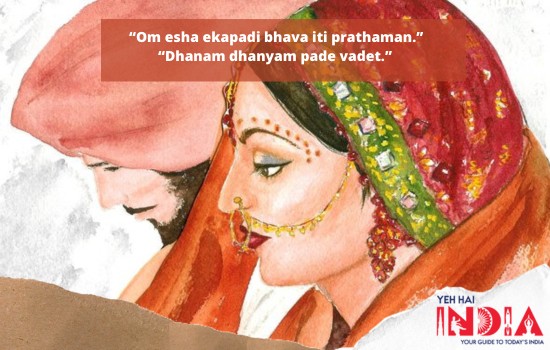
The Groom says, “Om esha ekapadi bhava iti prathaman.”
The Bride complies, “Dhanam dhanyam pade vadet.”
In the first vow, the groom said that I will bring happiness and happiness to you and the children we gave birth, and you should give me food and help when necessary.
In response, the bride promised to be responsible for all housework.
The oath shows that both parties are willing to bring prosperity to their lives; everyone agrees to perform their duties.
2. Second Vow:
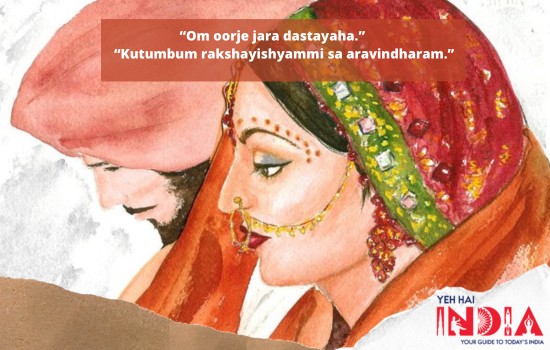
The Groom says, “Om oorje jara dastayaha.”
The Bride replies, “Kutumbum rakshayishyammi sa aravindharam.”
In the second vow, the groom says that we will protect our children and our home together, while the bride promises to stand by her husband as her strength and courage.
She promised to be happy for his happiness, and in return, he asked him to be loyal to her.
Also, In the second vow, the couple seeks an emotional, psychological, and spiritual combination.
Since they will become partners, they seek strength to protect each other at all stages of their lives.
3. Third Vow
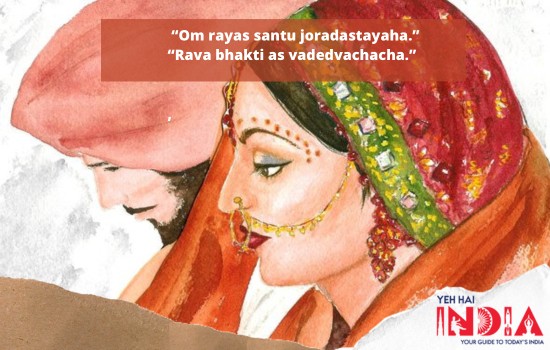
The Groom says, “Om rayas santu joradastayaha.”
The Bride assures, “Rava bhakti as vadedvachacha.”
In the third vow, the groom hopes that they and their children will have a prosperous future.
The bride’s response was to assure her that she will continue to be loyal to her husband and that the other men in her life are secondary.
Moreover, the third sacred vow of a Hindu wedding is that the bride and groom pray for wealth and prosperity together and promise to fulfil their spiritual obligations.
They also seek blessings for being able to raise their children and take care of all their needs.
The vow shows the physical and spiritual loyalty to the bride and groom throughout their lives.
4. Fourth Vow:
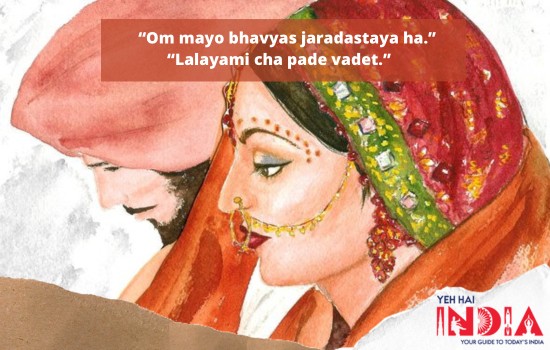
The Groom says, “Om mayo bhavyas jaradastaya ha.”
The Bride responses, “Lalayami cha pade vadet.”
In the fourth oath, the bridegroom announced to the bride that she had completed her life and promised to respect her.
He wants their children to be obedient and noble.
He also hoped that their children will live long and expressed interest in seeking their education.
The bride promises that her husband will bathe with joy and happiness and will do everything to please him.
The fourth vow of the Hindu wedding ceremony shows the importance of the family in Indian society.
The couple is committed to strengthening their family by maintaining family values.
The couple also thanked each other, prayed for the blessing of future generations, and prayed for nobility and obedience.
They also vowed to become responsible parents for their children, so that they can be properly educated and raised.
Recommended Story – Maharashtrian Wedding Rituals and Ceremonies
5. Fifth Vow:
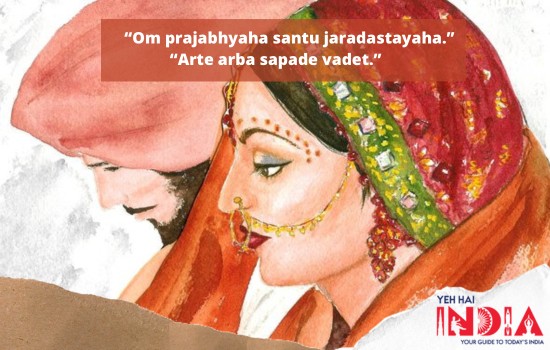
The Groom says, “Om prajabhyaha santu jaradastayaha.”
The Bride replies, “Arte arba sapade vadet.”
In the fifth oath, the bridegroom called the bride his best friend and blesser. He thanked her and asked God to bless her.
In addition, the bride promised to love him for life and cherish him.
She said that his happiness, anger, sorrow, and joy are now hers. The bride promised the groom to respect him and work hard to realize his wish.
The fifth marriage vow shows the importance of loyalty and interdependence.
The groom expressed his gratitude and called the bride his best friend, while the bride promised to love and cherish their relationship forever.
6. Sixth Vow:
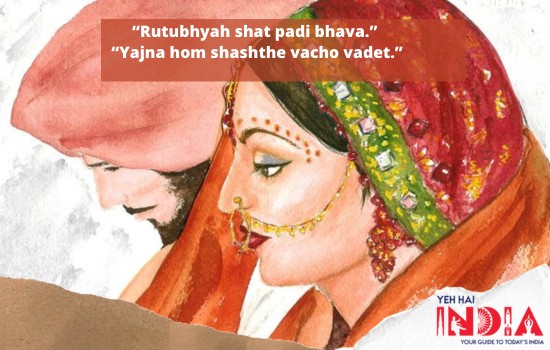
The Groom says, “Rutubhyah shat padi bhava.”
The Bride promises, “Yajna hom shashthe vacho vadet.”
In the sixth vow, the bridegroom said to the bride: “Now you and I have walked six steps, I am very happy.
Can you promise me to fill my heart with the same happiness for the rest of my life?”
In addition, the bride promised to and her husband lifetime.
Together, they prayed for God’s blessings, granting them a long and healthy life full of peace and prosperity.
The sixth vow gives the groom a chance to convey to the bride the depth of happiness he found her.
The bride affirmed her love for the groom and promised to support him forever.
This vow also points out the importance of health, peace, and prosperity.
7. Seventh Vow:
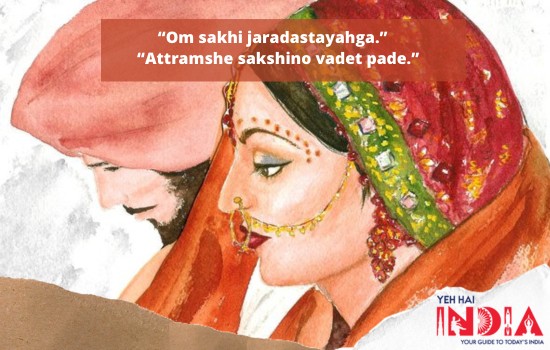
The Groom says, “Om sakhi jaradastayahga.”
The Bride replies, “Attramshe sakshino vadet pade.”
In the seventh and final vow, the groom declared: “We are now husband and wife, and now we will always be together.”
In her answer, the bride said that she is now with God, becoming his wife, and both are always cherished and glorified.
The final vow heralding the completion of the divine union is sealed with the promise of becoming a lifelong partner.
The couple promised to support each other and remain loyal throughout their relationship. The vow of loyalty and the willingness to spend a lifetime not with another person but with friends make the final vow special.
After these seven vows, the groom and bride are considered married as per the Hindu norms.
Also Read – Sikh Wedding Rituals and Ceremonies




